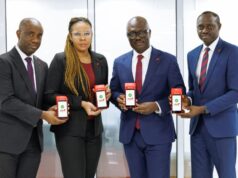By Audrey Lotechukwu
MON, 30 NOV, 2020-theGBJournal- The Federal Government is resetting in earnest its clean energy agenda and accelerating commitment contained in the Economic Sustainability Plan (ESP) which has energy access embedded in it.
The planned roll of Autogas on Tuesday (December 1) and the plan to convert 1 million vehicle conversion by the end of 2021 is the culmination of the resolve of the President Muhammadu Buhari’s led government to deepen domestic usage of natural gas in its various form as well as an effort in using the coronavirus pandemic to build a sustainable energy future.
A major component of the clean energy agenda is ready to be rolled out as well. The Federal Government will commence the process of installation of 5 million solar home systems in under-served and off-grid communities across the country. The solar installation is expected to create about 250, 000 jobs including in manufacturing, assembling of solar components in Nigeria, installations, maintenance and payment systems.
The 5 million solar home systems programme is a private sector-led electricity access acceleration scheme to be facilitated by the Central Bank of Nigeria (CBN) and implemented by the Rural Electrification Agency (REA).
The program has been designed to address access to affordable finance as well. The Solar Connection Intervention Facility from the Central Bank of Nigeria (CBN) makes low-cost local currency debt available to Nigeria Electrification Project (NEP) pre-qualified SHS distributors and Mini grid development companies.
Already, fossil fuel subsidy is gradually being eliminated, an encouraging sign that it is ready to transfer substantial investment into green investment. Another significant step is the adoption by the Standard Organisation of Nigeria (SON) the IEC/Lighting Global quality standard, which the World Economic Forum (WEF) reckons ‘’will play a critical role in providing consumers, the supply chain, financial instructions and investors with the confidence and reassurance that they need to invest and embrace off-grid solutions.’’
The handover of CNG-powered mass transport buses to the Nigeria Labour Congress (NLC) on the same day as the commencement of the process of installation of 5 million solar home systems, is also in line with the government’s plan to make gas the first choice source of cheaper and cleaner energy for Nigerians and herald the clean energy transition for Nigeria and delivery of cheaper transportation fuel.
The financing support for the attainment of these programmes has come in the form of the World Bank $350 million facility as well as the $200 million facility provided by African Development Bank for off-grid development as part of the Nigeria Electrification Project (NEP).
WEF notes that these investment is expected to leverage over $81 billion in additional funding from the private sector ‘’and in the wake of COVID-19, these investments will become even more important to help speed and scale progress.’’
Twitter-@theGBJournal|email: info@govandbusinessjournal.com.ng









